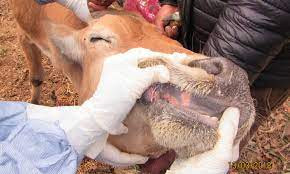
Government has launched a nationwide foot and mouth disease (FMD) vaccination campaign to protect the livestock industry starting with Masvingo province.
The initiative follows recent reports of outbreaks in Gutu, Bikita and Buhera districts, raising concerns among farmers about the security of their herds.
The programme was officially rolled out at Zivave Diptank in Masvingo North Constituency, where farmers expressed appreciation for the government’s timely intervention.
“We have started with Masvingo and will be moving to Manicaland and Matabeleland South,” chief director of veterinary services in the Ministry of Lands, Agriculture, Fisheries, Water and Rural Development, Pious Makaya, said.
“The vaccines are coming in batches, and our teams are on the ground to ensure full coverage.
“Protecting the national herd is key to safeguarding livelihoods and ensuring food security.”
Permanent secretary for Masvingo Province, Addmore Pazvakavambwa, called on farmers to ensure their cattle are vaccinated.
“This programme is a critical intervention that will continue until the entire herd is protected,” he said.
- Villagers fight climate change through smart agric
- Minister dragged to court over chieftainship
- Another teenager dies giving birth at shrine
- Health talk: GZU School of Medicine boon for Masvingo
Keep Reading
“We are urging all farmers to cooperate fully.
“The government remains committed to supporting livestock production through sustained disease control and prevention efforts.”
Foot and mouth disease poses a serious threat to both animal health and the economy, often leading to movement restrictions, trade bans, and loss of income for rural communities dependent on livestock.
The vaccination campaign is also expected to bolster Zimbabwe’s beef export potential and preserve access to key markets, which require strict animal health standards.
Farmers in the province welcomed the intervention, describing it as timely and necessary.
“We are happy this programme has started,” said one farmer from Masvingo North,” Pazvakavambwa said.
“Cases have been reported in nearby districts, and we were really worried.
“In the past, we lost a lot of cattle to drought and January disease.
“This gives us hope that our animals will be safe and we can continue to trade freely.”









